Amanda has spoken to one other parent whose daughter had the condition and died at the age of two
Jack is one of only 16 children in the world with a life-limiting genetic condition that is so rare it doesn't have a name.
The 11-month-old has a mutation of the PPFIBP1 gene which means he is blind, has frequent seizures and is unlikely to ever walk or talk.
His mum and dad want to track down the parents of the other children with his condition to better understand their son's diagnosis and offer support.
"It is very limited with what they can tell us," said his mum Amanda Thomas from St Athan, Vale of Glamorgan.
"But what they have said is it is life-limiting and it is likely that he will pass away at some point during childhood but they don't know when that will be."

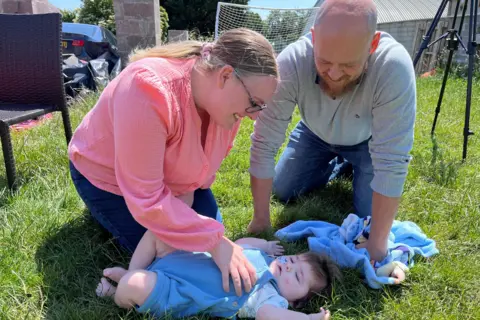 Family photo
Family photo
Amanda and Nick want to find out all they can about Jack's rare condition
To date Amanda has spoken to one other parent, a woman from Georgia in the US, whose daughter had the condition and died at the age of two.
"She felt so blessed to have her little girl in her life, even for a short time and you could just see how much love was there," said Amanda.
She said being able to ask one another questions was helpful for both of them and she was left overwhelmed by the experience.

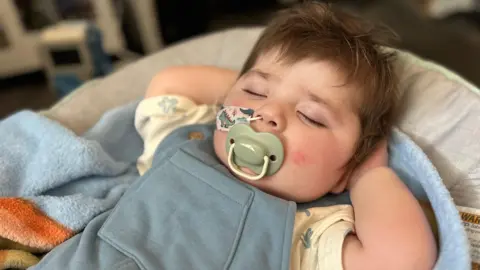
Jack has a mutation of the PPFIBP1 gene
For the first few weeks of his life, Amanda and Nick's fourth child Jack appeared completely healthy.
He was nine weeks old when they first spotted something that caused concern.
"His right eye had dropped to the outside and it had fixed but his head had stuck to the side as well," explained Amanda.
"Nick took one look at him and said 'I think he needs to go into A&E'."
Initially doctors were not overly concerned and the family returned home.
Just hours later the same thing happened again only this time Jack was also lethargic and his breathing had become shallow so he was taken to hospital by ambulance.
Shortly after arriving he had his first seizure.

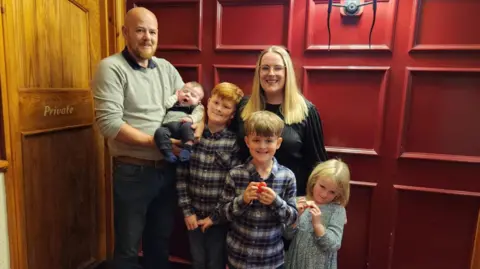 Family photo
Family photo
Jack is Amanda and Nick's fourth child
"He stopped breathing, I shouted for help and an entire crash team came in," said Amanda.
"They resuscitated him and then on the way to taking him to resus they had to stop in the corridor and resuscitate him again."
Jack was put on a ventilator and moved into intensive care.
Doctors were at a loss as to what was wrong with him.
Following a number of tests that led nowhere the family underwent genetic testing.
The results showed Jack has a mutated PPFIBP1 gene.
"They explained that every gene has two copies and with this particular gene I carry one mutated copy and Nick carries another mutated copy," said Amanda.
"It's meant that both of Jack's copies of this gene have got a variation to it which has caused this neurodevelopmental disorder which doesn't have a name because it is so rare."

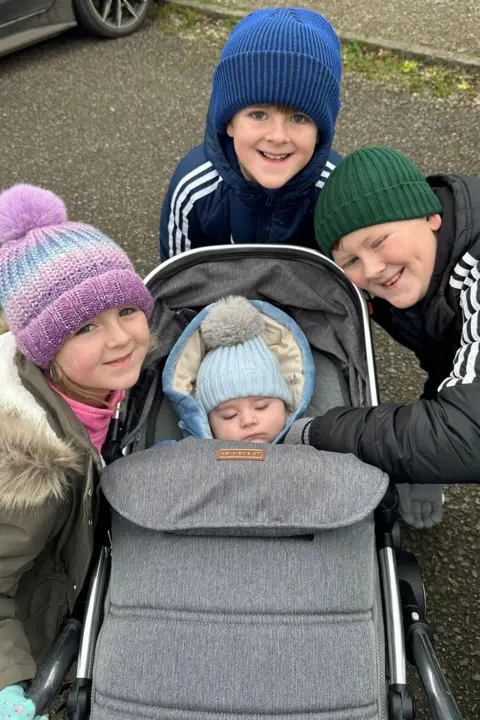 Family photo
Family photo
The couple's other children also had to undergo genetic testing
With so few known cases it is hard for doctors to predict Jack's life expectancy.
"They've said it could be when he's one, it could be when he's five, it could be 10 years but knowing that we're going to outlive our child and knowing that his brothers and his sister may one day have to say goodbye to him is heart-breaking," said Amanda.
Amanda and Nick were told their other children - aged 10, eight and 4 - also had a 25% chance of having the mutated gene but tests showed this was not the case.

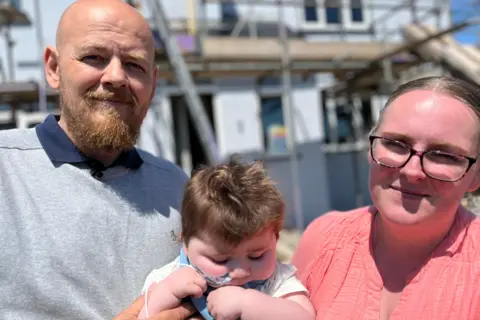 Family photo
Family photo
The family's home is something of a building site as renovation work stopped when Jack was diagnosed
When Jack first became unwell last September the family were in the middle of fully renovating their house.
Everything came to a standstill so the family home is a partial building site.
Amanda has left her job in social services to take care of Jack full-time and Nick has been able to continue working but is recovering from a stroke in July 2023 and heart surgery that followed in May last year.
They are trying to crowdfund the renovation as well as equipment for Jack.
"Life is testing," admitted Nick.
"Amanda and I have to be realistic this could be his last Christmas, this could be his last birthday so really we're just trying to get this as comfortable as possible so Jack enjoys the time he does have with us.
He said he and Amanda found strength in one another.
Alongside all of this Amanda is continuing her search for other parents of children with Jack's condition.
"When we had our diagnosis we had nobody to turn to because there was nobody who had the same condition so there's no support groups available, there's nothing," said Amanda.
"If somebody in the future gets this diagnosis then perhaps they can find me, and I can offer a bit of support that I didn't have in the beginning because there were so many questions, so many what ifs, where, how, which were all just being met with 'we don't know'."

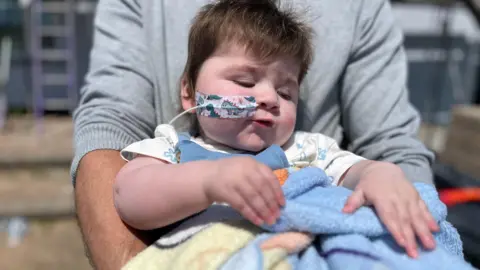 Family photo
Family photo
Jack will turn one in July
Over the past eight months Jack has been taken to hospital by air ambulance three times and the family have spent about 60 nights in hospital.
With the future so uncertain the family are making the most of every moment.
"I just used to stress about the things that didn't matter, my house not being tidy, the washing piling up, now I'm learning that's not important anymore," said Amanda.
"We really do have limited time with Jack so it's about having those moments and making the most of it."





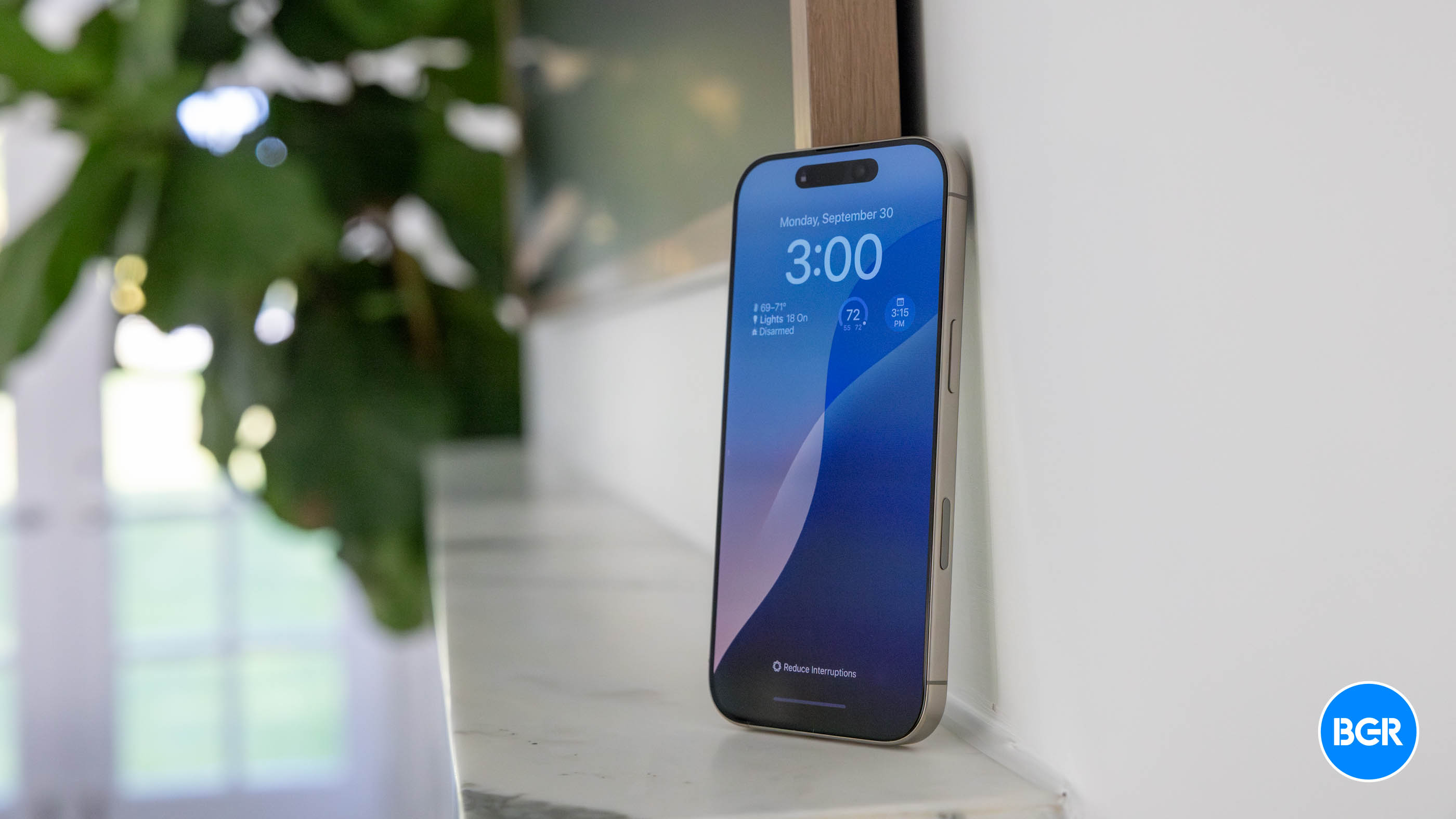
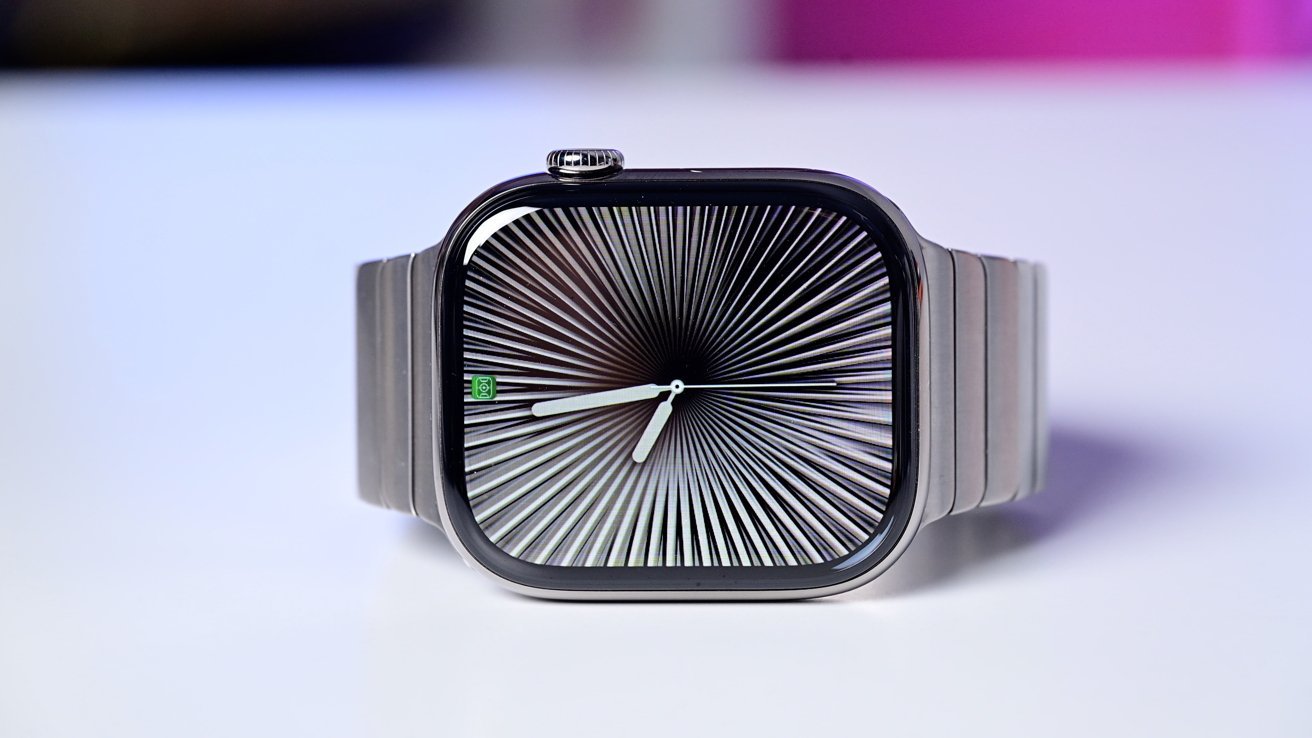
 English (US) ·
English (US) ·